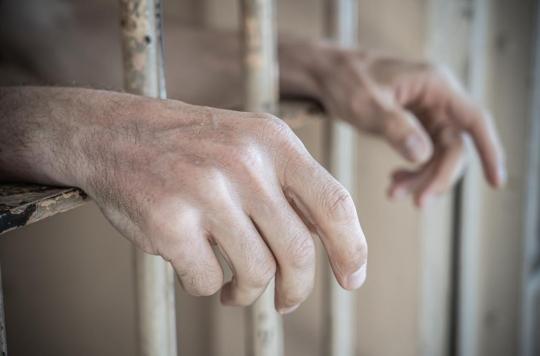In prison, in police custody or in a psychiatric establishment, the health of detainees is not always taken seriously. The Comptroller General delivers a damning report on the subject.

Deprivation of liberties does not often rhyme with health. In his Activity Report 2015, Adeline Hazan, General Controller of places of deprivation of liberty, delivers a very gloomy report on access to care for detainees, even temporary ones. Whether they are in police custody or in a detention center, they also benefit from poor hygienic conditions.
Limited access to care
The Controller’s criticisms are above all directed at prison overcrowding. It is 35% in remand centers but can reach 100% in Île-de-France and overseas. This situation leads to forced promiscuity, a source of tension between fellow prisoners. Tension accentuated by the crowded rooms coupled with the number of supervisors who are sometimes lacking. But overpopulation also causes a less well-known effect: access to healthcare is made difficult. This is the subject of 16.5% of investigations carried out by controllers in 2015.
“Access to healthcare for detained persons remains a source of major difficulties and the principle of equal access to healthcare, yet established more than twenty years ago by the law of January 18, 1994 on public health and social protection is still not respected, ”the report laments. Adeline Hazan advocates a more systematic search for alternatives to imprisonment, but also the review of suspensions of sentences for medical reasons, in order to relieve the cells. Transport to healthcare facilities also leaves much to be desired, as does the respect of medical confidentiality.
Impaired psychiatric patients
But it is not only in the detention center that the situation is problematic. In psychiatric care establishments, the results are close to catastrophic, with the failure to respect patients’ rights and the rules of good practice. While the patient must be informed, as soon as his state of health allows it, of the measures related to his hospitalization without consent, the rules are not always respected – or in an approximate way. To resolve this problem, the Controller pleads in favor of the development of a standard document by the Ministry of Health.
The fear of running away is such that restrictive measures take precedence over care. “Too often, confinement leads to the infantilization and disempowerment of patients,” the report emphasizes. Safety concerns pervade psychiatric practices. “
Lack of sanitary facilities
The auditors’ findings are not more positive in places of pre-trial detention. Those in custody are often held in premises in poor condition. The observation is cold in the back. On the national police side: “dirty, dilapidated, poorly lit or poorly heated premises, unsatisfactory personal hygiene conditions”. On the court side: “sanitary facilities, sometimes of questionable cleanliness, the layout of which does not respect privacy”. When they are not simply absent.
The only area for improvement lies with young mothers and their children, whose rights are now better respected. The rights of patients in compulsory care have also been strengthened thanks to the latest law to modernize the health system. But the Comptroller General emphasizes all the same: “Progress is far too slow and there is still a long way to go. “
.















